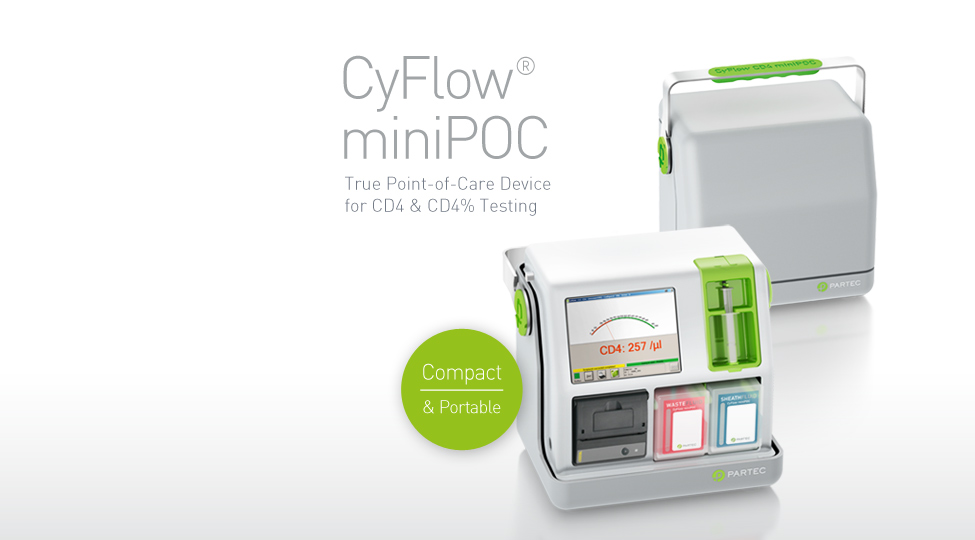Highlands Hope Umbrella is proud to announce a new project to implement and evaluate the latest point of care (POC) CD4 and CD4% assessment technologies in partnership with the German technology firm Partec (which has donated a miniPOC device along with a complete "Lab-in-a-Box" to Highlands Hope) and with McGill University's Ingram School of Nursing.
Partec's miniPOC technology is fully portable, allowing Highlands Hope nurses and volunteers to take diagnostics required for the best HIV care driectly to our patients in their villages. This reduces considerably the inconvenience and the cost of coming each month to the Tanwat HIV Care and Treatment Centre in Njombe for assessment - a considerable distance for many of our patients.
Partec's recently released CyFlow® miniPOC technology, together with the revolutionary Partec dry CD4/CD4% tests "eliminate any need for cold chain and cold storage, allows the user to perform this immune status analysis without a large laboratory infrastructure and specially trained staff. This stand-alone instrument, with a weight of less than 5 kg, can easily be moved close to the patients. The CyFlow® miniPOC runs on regular 110 or 240v power supplies, a rechargeable battery pack, or optional solar panels. It is, therefore, ideally suited as a true point-of-care (POC) solution for primary health centers and PMTCT sites in all settings." (see http://tinyurl.com/q5gwm3x )
"We are excited about the potential of Partec's miniPOC technology," says Highlands Hope Coordinator Betty Liduke. "Our local health officials for Njombe Region are watching our pilot program and are thinking that a successful roll out could provide them with a solution to get HIV testing and care closer to the people in need across our region. We are especially pleased to be using Partec systems because they allow us to asses CD4%, an essential diagnostic for pediatric patients."
According to its website, Partec CyFlow® CD4 counting devices have been widely implemented in HIV treatment programs in 100 countries worldwide. From 2008 to 2012, "14 million CD4 and CD4% tests have been supplied from Partec."
"We have been using CyFlow technology for several years now at our Care and Treatment Centre," explains Betty Liduke. "Its proven itself as dependable and sustainable in our rural, East African community. We're very happy to partner with Partec to bring this technology closer to our patients and with McGill to document its impact on patients' well-being."
McGill nursing graduate student Maggie Wilson will be spending 3 months in Njombe beginning in September and doing a preliminary qualitative assessment of the impact of the miniPOC on the provision of HIV care.
Highlands Hope Umbrella would like to thank Roland Goehde, Francesco Marinucci, and John Khisa of Partec and Prof. Madeleine Buck and Maggie Wilson of the Ingram School of Nursing for leadership and support in bringing this project together.


